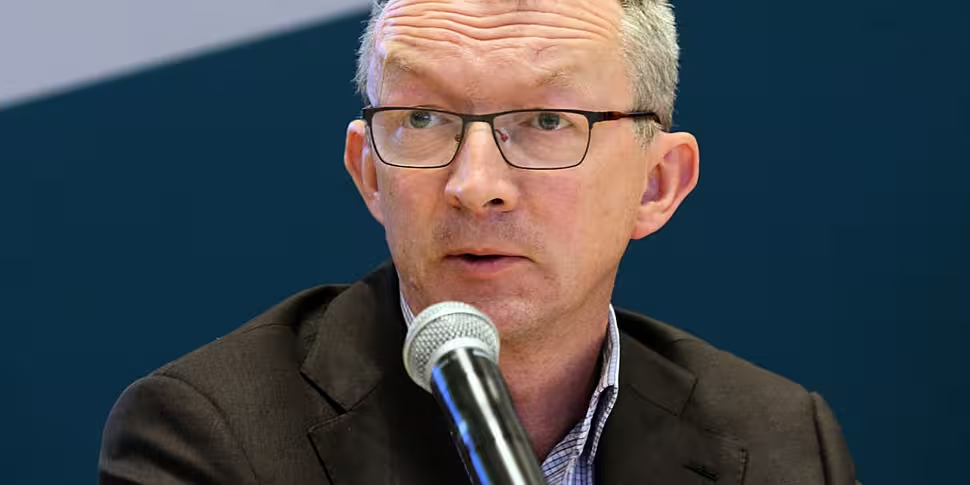The HSE's Chief Clinical Officer says the potential for an "apartheid society" can be avoided if people redouble their efforts to contain the spread of COVID-19.
A recent increase in cases has seen 231 confirmed yesterday which marks the highest daily number in four months.
There has also been a steady rise in hospital admissions.
48 people are being treated in hospitals today while six are in intensive care.
It comes after the Acting Chief Medical Officer Dr Ronan Glynn advised people living in Dublin to "keep their social contacts as low as possible" after 133 new cases were recorded there yesterday.
Dr Colm Henry from the HSE says it is important that people act now to avoid further restrictions.
Speaking on Newstalk's On The Record with Gavan Reilly programme today, Dr Henry outlined the reasons why people should increase their efforts.
He said: "So we can protect older people, and not create some sort of apartheid society when there's one set of rules for older people and one set of rules for younger people.
"And also get our schools back on track.
"We need to redouble our efforts with a common sense of purpose, we're not just trying to avoid Bergamo.
"We're trying to reopen society again, we're trying to live with COVID but in a different way than we have before.
Dr Henry said he acknowledges that fatigue may be setting in with people after six months of living with virus but said that we need to remain vigilant.
He said: "There is now, understandably, a great sense of fatigue.
"But unfortunately, the virus doesn't feel emotions and it hasn't changed.
"It's every bit as transmissible now as it was then and quite prolifically we're seeing a small trickle in the increase in hospitalizations.
"There have been 48 today with six patients in ICU and a small but steady increase in the number of older people and this is a reminder of how transmissible this virus is."
System must not be 'overwhelmed'
Dr Henry warned that Ireland must avoid an "overwhelmed" hospital system this winter.
It comes amid concern at the rising COVID-19 cases and the impact any potential second wave could have on the health system over the coming months.
He said a more "nuanced deal" with private hospitals is being worked on as an "insurance policy" in the event extra capacity is needed.
"We cannot face an overwhelmed hospital system and we cannot face levels of congestion in our emergency departments like we saw in previous years.
"For this reason, we're focusing on avoiding people getting to hospital.
"Our Winter Plan, which is being finalised at the moment, is looking at the development of community assessment hubs being refashioned to look at people with respiratory disease presenting in the community.
"We're also looking to add to our hospital capacity with the addition of 400 acute beds this year."
Dr Henry stated that the HSE also hopes to increase the country's ICU capacity to over 500 beds in the coming years.
He said there are currently around 370 in the hospital system but plans are in place to increase that further.
He added: "Our level of ICU beds was far too low before we knew this, it was 225 per year.
"So we've built that considerably just before the crisis and during the crisis.
"We've submitted a plan to Government hoping to expand that over the coming years up to 500 in line with international metrics for ICU beds."









